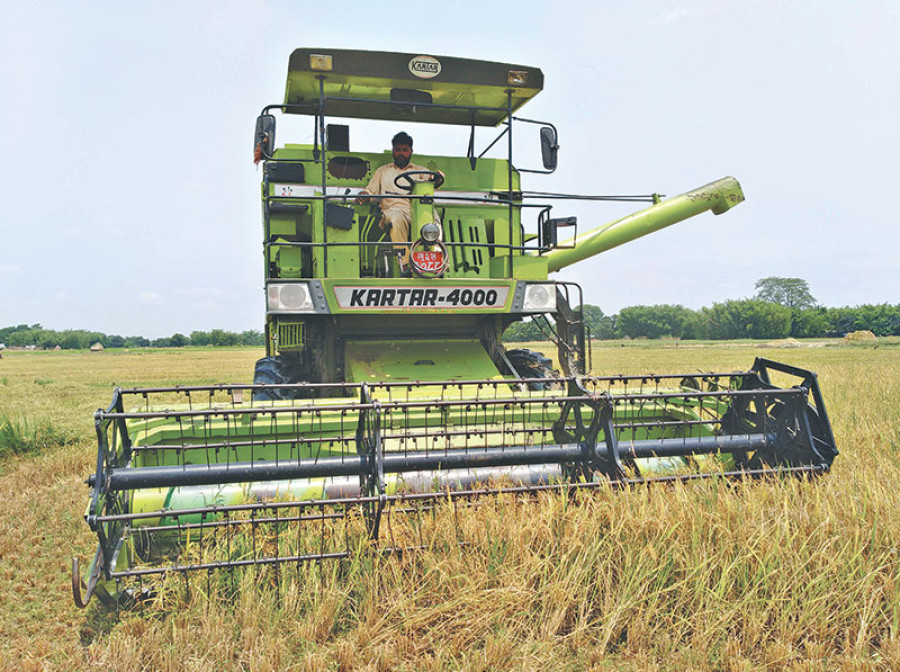Money
Govt raises MSP for paddy
The minimum support price (MSP) for common paddy has been raised to Rs2,460.57 per quintal from Rs2,438. Similarly, the floor price for ‘mota dhan’ has been pushed up to Rs2,331.22 per quintal from Rs2,247.
The minimum support price (MSP) for common paddy has been raised to Rs2,460.57 per quintal from Rs2,438. Similarly, the floor price for ‘mota dhan’ has been pushed up to Rs2,331.22 per quintal from Rs2,247.
A high-level government committee on Tuesday approved the MSP for this fiscal year recommended by the advisory body of the Agriculture Ministry. The MSP ensures a profit of at least 30 percent for farmers. The new rates will go into effect after they are approved by the Cabinet.
The high-level government committee comprising representatives from the Commerce, Supplies, Agriculture, Home and Finance ministries approved the recommended MSP price for this fiscal year, said Chandra Kumar Ghimire, secretary of the Ministry of Commerce and Supplies. “The meeting approved the recommendation, and it will be submitted to the Cabinet for its approval.”
The budget statement for the current fiscal year also said the MSP would be fixed on time to encourage farmers. The MSP is computed based on farmers’ cost of production, transportation costs and inflation.
“We have recommended giving a profit of at least 30 percent to farmers,” said Yubak Dhoj GC, secretary at the Agriculture Ministry. “The MSP is the lowest legal price that can be paid for farmers’ harvests.” The government does not fix the floor price of fine paddy.
A minimum support price is an intervention by the government to protect farmers against sudden slumps in the market price. It is the rate at which the government buys farm produce when there are no other buyers in the market. Normally, it is announced in time for farmers to make their production plans before the beginning of the planting season. The government has to buy a certain amount of the total paddy harvest under the scheme.
In 2017-2018, although the advisory body of the Agriculture Ministry had recommended the MSP, it was never implemented as the proposal of the Supplies Ministry’s was sent back by the Cabinet citing provincial and federal elections. It was announced in September. Subsequently, Nepal Food Corporation (NFC) started procuring paddy from farmers by announcing the prices internally.
In 2016-17, the MSP was announced in mid-November. Lawmakers at that time said the government’s policy was ‘absurd’ because the MSP was announced in mid-November when many farmers would have already harvested and sold their paddy crops by October-end.
Moreover, at that time it was found that NFC had procured paddy for less than the MSP. Lawmakers said that the MSP was supposed to be an incentive to farmers to boost output, but the floor price fixed by the government had ‘discouraged’ them instead.
In 2012, the government announced that it would resume the policy of fixing the minimum price following complaints that middlemen had been determining the market rate. It has been reported that Nepal does not have an effective MSP.
The MSP for paddy and wheat used to be announced until 1999. The practice was fully abandoned after the government launched the 20-year Agriculture Perspective Plan, according to reports. Even when the MSP was announced, it was not much relevant as it was set well below the projected market price to protect the government from having to buy farm products if prices should tumble.
Moreover, reports said that even when support prices were announced, it was not done before the beginning of the planting season so it did not help farmers to make production decisions.




 21.12°C Kathmandu
21.12°C Kathmandu













